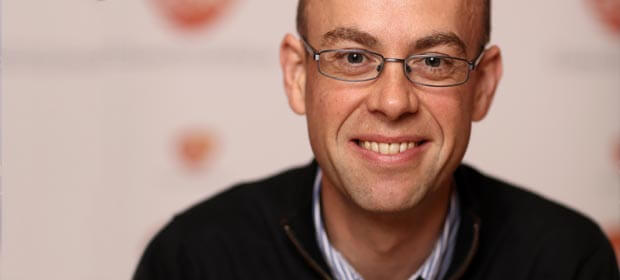Recognising the physical and emotional toll involved, GSK has designed a number of supports for staff that seek to provide employees with the tools and skills to work through change and manage their personal resilience, writes Liam Cullen.

News of a French “ban” on employers e-mailing workers after six o’clock in the evening made headlines around the world two months ago. Though much of the coverage greatly exaggerated the scope of the “ban”, the fact that the story featured on the front page of the New York Times points to a problem with which millions of people around the world could identify. With the evolution of mobile technology, we spend most of our waking day connected to the internet and are increasingly contactable. Surprisingly, data produced by the OECD recently points to a slight decline in the number of hours worked every year between 1990-2012. The fall in the Irish figures was the most pronounced but that is likely to have more to do with effects of the economic downturn rather than lifestyle changes. It may well be that the amount of time we spend in the workplace is falling ever so slightly but our connectedness to work is on the increase.
Productivity in the workplace is scrutinized like never before. Even before the recent economic downturn took root in 2008, we heard the constant refrain, “we must do more with less”. Whether we like it or not, this hackneyed phrase has come to represent the agenda adopted by Governments and businesses over the past five years. Employees are expected to continuously improve productivity with less allocated resources. In many cases, the phrase “change” has come to represent the allocation of additional responsibilities in the absence of former colleagues. Just like the Health Services, GSK has undergone much organisational change in Europe in the face of austerity.
In Ireland alone, the shape of GSK’s businesses has significantly changed. Our Trading Services Operations in Cork closed, our Stiefel factory in Sligo was due to close but has been retained and is forecast to grow, there has been new investment in our active ingredient site in Cork, investment in green energy planned for Dungarvan, while our Commercial Pharma and Consumer businesses have downsized.
With the evolution of mobile technology, we spend most of our waking day connected to the internet and are increasingly contactable.
Throughout such times of change, employees at all levels of the organisation face challenges and their resilience is tested. Recognising the physical and emotional toll involved, GSK has designed a number of supports for staff that seek to provide employees with the tools and skills to work through change and manage their personal resilience.
Similarly, managers are provided with supports to lead themselves and others through times of change. People are tutored on the different stages of change,focusing on the feelings and emotions that are associated with change, which range from shock and denial to excitement and optimism about the future. All staff are encouraged to measure their physical and emotional energy levels. Honest and open communication with staff is emphasised and staff are encouraged to discuss and seek to influence the future shape of the organisation. This may be achieved through formal structures or more informal sessions such as Town Hall meetings and discussion with line managers. From coaching in the workplace training, to change management tools, all staff are encouraged to access supports that will assist their resilience and ability to cope in times of change. Rather than a luxury, such supports are viewed as vital and business critical in managing a dynamic and ever evolving company.
The neoliberal economist John Maynard Keynes writing in a 1930 essay “Economic possibilities for our grandchildren”, predicted that people might need work no more than 15 hours per week by 2030. The philosopher, Bertrand Ertrand Russell mused in his 1932 essay, “In Praise of Idleness”, that if society were better managed the average person would only need to work four hours a day. We have clearly failed to live up to both men’s expectations. More and more businesses realise that productivity is inherently linked to contentment. In supporting our staff to be more resilient and energised we are hoping to improve effectiveness both inside and outside the workplace.
Liam Cullen, Government Affairs Director at GSK

